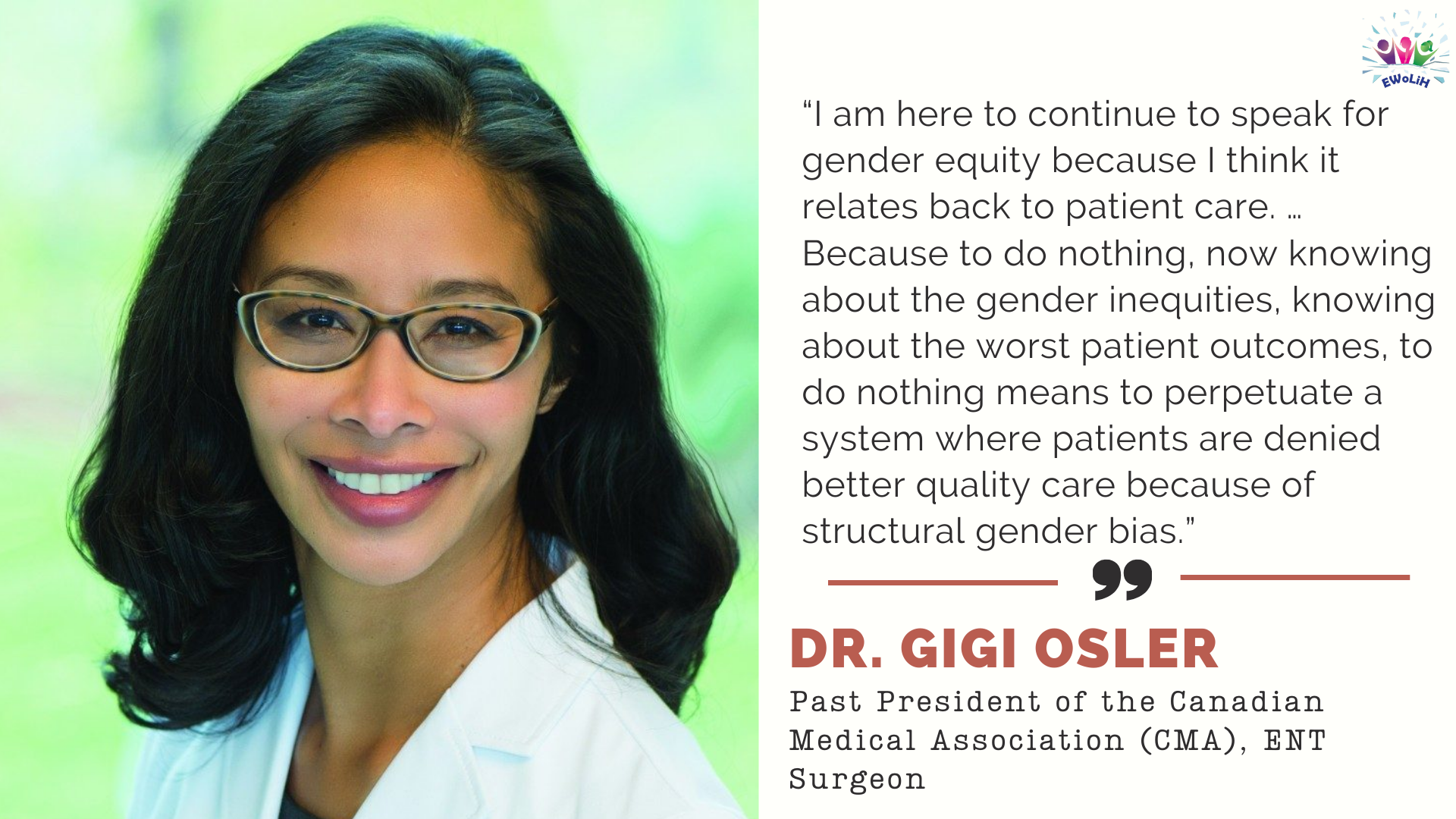
Goal-Oriented Leaders
Set Directions
Strategically Align Decisions with Vision, Values, and Evidence
Take Action to Implement Decisions
Assess and Evaluate
Achieve EDI-Informed Results
Ivy Lynn Bourgeault, University of Ottawa & Canadian Health Workforce Network
The third A in the LEADS Framework, Achieve Results, focuses on goal-oriented leaders. The four capabilities – set direction; strategically align decisions with vision, values and evidence; take action to implement decision and assess; and evaluation – are all relevant to EDI. EDI-informed, goal-oriented leaders dedicate resources to address EDI outcomes and embed these processes within their department, division, or organization. First, leaders must establish a baseline knowledge through environmental scanning and audits of EDI data (e.g. staff, clients, and services), if they do not already exist. Next, they must consult a diverse range of interested stakeholders in high-level meetings to reach a (near to) consensus direction of EDI initiatives that are in alignment with organizational vision and values. These EDI plans must be resourced, implemented, and acted upon and supported with evidence-informed tools. One made-in-Canada EDI toolkit, developed from the Empowering Women Leaders in Health initiative, is available on the LEADS platform . Tools include EDI-aware hiring and promotion practices and EDI-supportive organizational policies, processes, and culture. Continuous monitoring, reassessment, and evaluation to track progress towards EDI goals and resetting direction for continuous improvement must be embedded in organizational processes for optimal results.
How to be an active bystander
This guide was created to assist organizations in implementing bystander actions as part of their efforts to prevent sexist and sexually harassing behaviors. It defines bystander action and describes four important stages for establishing successful bystander programs.
In health care, do the people in power reflect the people they serve?
Despite initiatives to promote diversity on Ontario healthcare boards, visible minorities account for just 22% of LHIN boards and 14% of hospital boards. Prioritizing professional backgrounds, time restraints, and fundraising duties are all obstacles. Camille Orridge emphasizes the need of taking a comprehensive strategy to ensuring that community perspectives are heard.
Advancing equity, diversity, and inclusion
The Lancet Group is committed to avoiding all-male panels (manels). Their editors will not participate on panels when there are no women. They aim for a minimum of 50% female speakers at their events and emphasize the importance of women as panelists, not simply moderators or chairs.
9 out of 10 people are biased against women: global study
According to a global research conducted by the United Nations Development Programme, approximately 90% of individuals have prejudices against women, which affects politics and corporate leadership. Surprisingly, roughly one-third of respondents support violence against women. Gender equality progress has stagnated, necessitating more effective strategies to counteract these ingrained prejudices.
Sexual Harassment of Canadian Medical Students: A National Survey
This study stresses the importance of ensuring respectful environments in canadian medical schools in order to prevent sexual harassment.
Truth and reconciliation: Healthcare organizational leadership
This article focuses on the importance of Indigenous representation in healthcare leadership positions.
Why it’s bad that 9 out of 10 BrainCanada /Azrieli Foundation early career awards went to men and how we might do things differently
This post focuses on gender bias and microaggression in the academic field and their repercussion on women's research to obtain fellowships.
Gender mainstreaming website for toolkits download
Gender mainstreaming is a key strategy adopted by the European Institute for Gender Equality (EIGE) to make gender equality a reality.
Give her a reason to stay in healthcare
The infographic is a campaign for the course "Career Advancement and Leadership Skills for Women in Healthcare" to find ways to suport women in medicine withing the organizations and healthcare institutions.
Kaizen "Focusing on Continuous Improvement in the Workplace"
This article focuses on the "Continuous Improvement Model" which is used in the workplace to improve work culture and daily performance.
In retrospect, Dr. Dennis, who had a fulfilling career, regrets not addressing gender imbalances and their own privilege as a male earlier. They eventually engaged in mentorship and allyship with women, finding it rewarding. They now take satisfaction in women's success but wish they had supported gender diversity earlier in their career.
Men should reach out to women interested in leadership roles, encourage them to apply and offer to serve them as their ally.
On the occasion of International Women's Day, Melanie Bechard posted on X that while it is good that men acknowledge their female partners' professional sacrifices, it is better that men structure their lives so that their female partners do not have to sacrifice their career goals.
In the quote by Bill Tholl, founding executive director of the Canadian Health Leadership Network affirms that it is necessary but not sufficient to mentor those that are behind you but also sponsor them. The distinction there is not just to point to doors, but to actually help doors open.






















